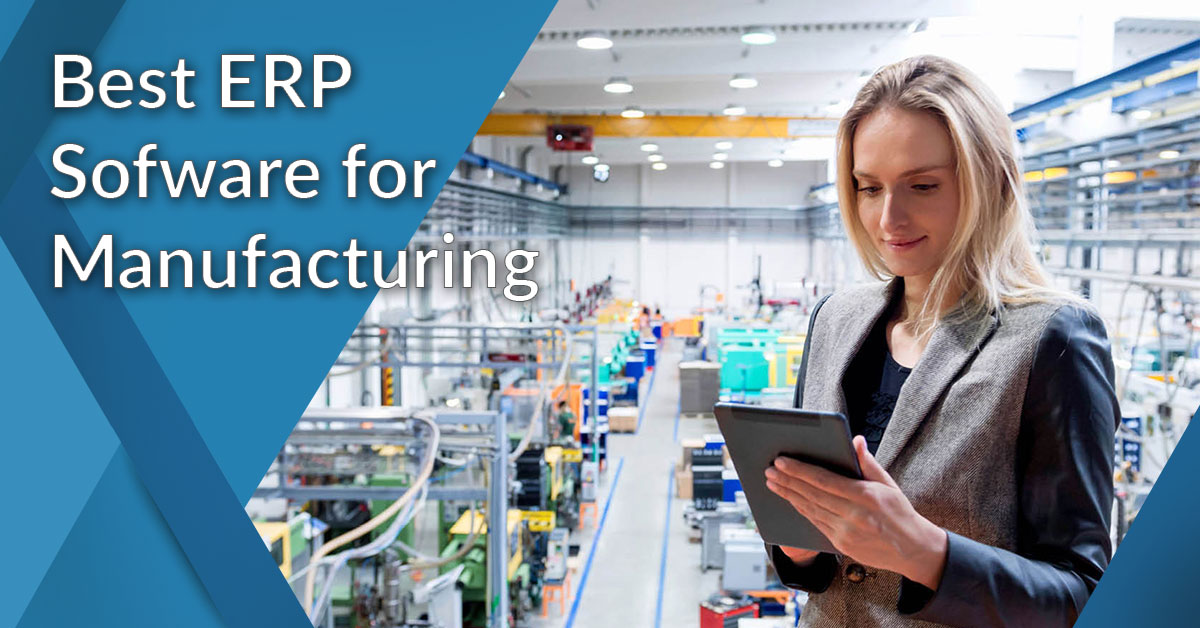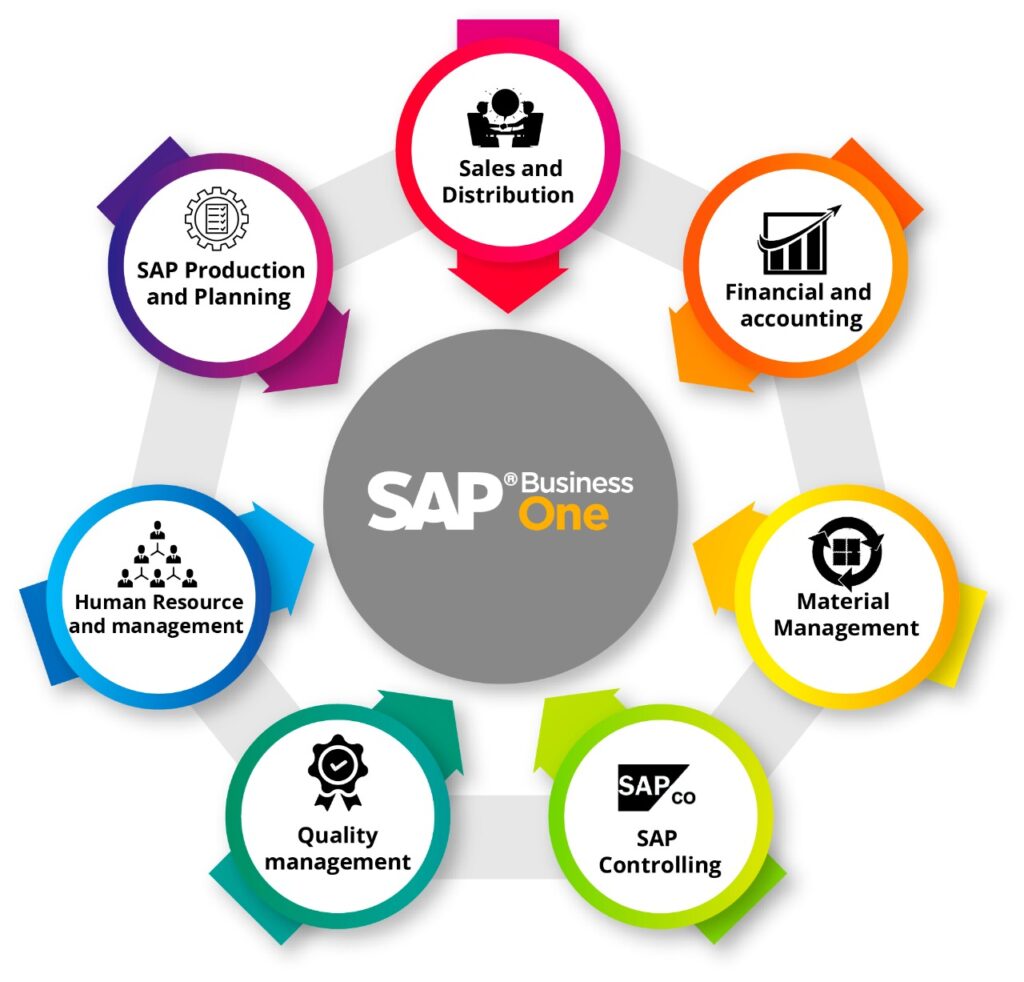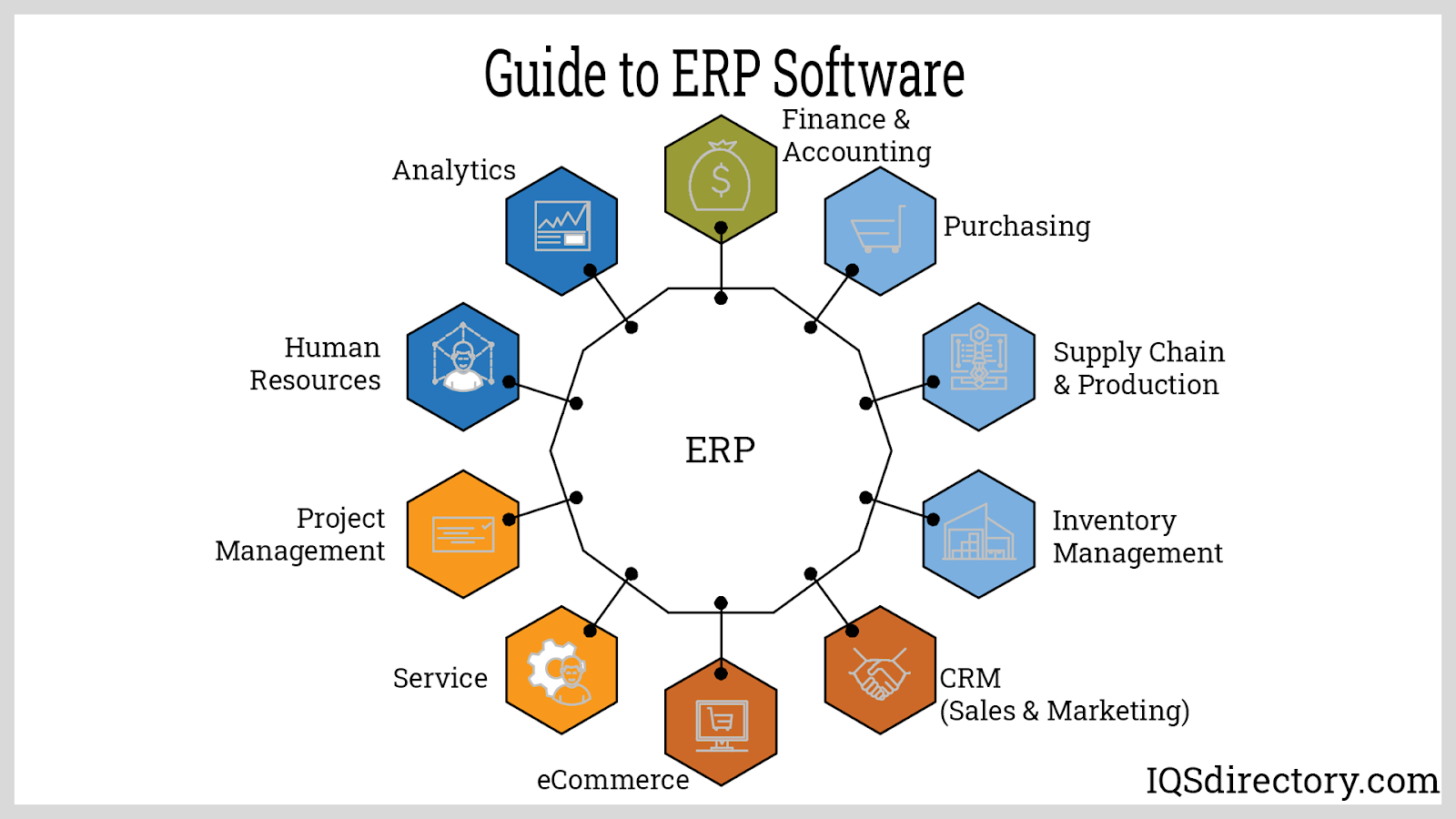Manufacturing ERP software revolutionizes the way businesses operate by integrating various processes into a centralized system. From enhancing productivity to ensuring seamless operations, this powerful tool is a game-changer for the manufacturing industry.
In today’s competitive landscape, companies are increasingly turning to manufacturing ERP software to stay ahead of the curve and drive growth. This comprehensive overview delves into the key aspects of manufacturing ERP software, shedding light on its benefits, features, implementation process, customization options, scalability, data security measures, and compliance requirements.
Overview of Manufacturing ERP Software
ERP (Enterprise Resource Planning) software plays a crucial role in streamlining and optimizing manufacturing processes by integrating various functions and departments within a company. It helps in managing resources, tracking inventory, improving production efficiency, and enhancing overall decision-making.
Popular Manufacturing ERP Software
- 1. SAP Business One: Known for its robust features and scalability, SAP Business One is widely used by manufacturing businesses of all sizes.
- 2. Oracle NetSuite: Offering cloud-based solutions, Oracle NetSuite is popular for its flexibility and real-time insights into operations.
- 3. Microsoft Dynamics 365: With its user-friendly interface and seamless integration with other Microsoft products, Dynamics 365 is a preferred choice for many manufacturing companies.
Benefits of Implementing ERP Software in Manufacturing
- Streamlined Operations: ERP software helps in automating processes, reducing manual tasks, and improving overall efficiency in manufacturing operations.
- Inventory Management: By providing real-time visibility into inventory levels, ERP software helps in optimizing stock levels, reducing wastage, and improving inventory turnover.
- Enhanced Decision-Making: With access to accurate and up-to-date data, manufacturing businesses can make informed decisions quickly, leading to improved productivity and profitability.
- Cost Savings: By eliminating redundancies, reducing errors, and improving resource utilization, ERP software can lead to cost savings in various aspects of manufacturing operations.
Features and Functionality

Manufacturing ERP software offers a wide range of key features that are essential for managing the complex processes involved in manufacturing operations. These features help streamline operations, improve efficiency, and enhance decision-making processes.
Inventory Management, Manufacturing erp software
- Real-time tracking of inventory levels
- Automated order processing
- Inventory optimization and forecasting
- Barcode scanning for accurate inventory counts
Production Planning
- Capacity planning and scheduling
- Resource allocation and management
- Work order management
- Bill of materials (BOM) management
Supply Chain Management
- Supplier relationship management
- Order processing and tracking
- Vendor performance evaluation
- Procurement automation
Quality Control
- Inspection management
- Non-conformance tracking
- Quality assurance processes
- Compliance monitoring
Integration with Other Systems
Manufacturing ERP software integrates seamlessly with other systems such as CRM, HR, and financial systems to ensure a holistic view of the organization’s operations. This integration allows for data sharing, streamlined processes, and improved decision-making across departments.
Implementation Process
Implementing manufacturing ERP software involves several crucial steps to ensure a smooth transition and successful integration into the existing processes of a manufacturing environment. Below, we Artikel the key steps, common challenges, and tips for a successful ERP software implementation in manufacturing.
Key Steps in Implementing Manufacturing ERP Software
- Planning and Preparation: Define goals, assess current processes, and establish a project team.
- Selection of ERP System: Research and choose an ERP system that aligns with the specific needs of the manufacturing company.
- Data Migration: Transfer existing data to the new ERP system accurately and securely.
- Customization and Configuration: Tailor the ERP software to meet the unique requirements of the manufacturing processes.
- Training and Testing: Train employees on the new system and conduct thorough testing to identify and resolve any issues.
- Go-Live and Support: Launch the ERP system, provide ongoing support, and continuously monitor and optimize its performance.
Common Challenges Faced During ERP Implementation in Manufacturing
- Resistance to Change: Employees may be resistant to adopting new processes and technologies.
- Data Integration Issues: Complications may arise when integrating data from multiple sources into the ERP system.
- Budget and Time Constraints: Limited resources and timeframes can impact the implementation process.
- Lack of Executive Support: Without strong leadership and support, ERP implementation may face obstacles.
Tips for a Successful ERP Software Implementation in Manufacturing
- Engage Stakeholders: Involve key stakeholders throughout the implementation process to ensure buy-in and support.
- Comprehensive Training: Provide thorough training to employees to increase adoption and proficiency with the new ERP system.
- Regular Communication: Maintain open and transparent communication to address concerns and provide updates on the implementation progress.
- Monitor Progress: Continuously monitor and evaluate the implementation progress to address any issues promptly.
- Post-Implementation Support: Offer ongoing support and training to ensure the long-term success and utilization of the ERP system.
Customization and Scalability: Manufacturing Erp Software

Customization and scalability are crucial aspects of manufacturing ERP software that can greatly impact a company’s operations and growth.
Importance of Customization
Customization options in manufacturing ERP software allow businesses to tailor the system to meet their specific needs and requirements. This ensures that the software aligns perfectly with the unique processes and workflows of the organization, enhancing efficiency and productivity.
Scalability with Business Growth
Manufacturing ERP software is designed to scale with business growth, meaning that as the company expands, the software can accommodate increased data, users, and transactions. This scalability ensures that the system remains effective and efficient, regardless of the size of the organization.
Impact of Customized ERP Solutions
- Customized ERP solutions have made a significant impact in industries such as automotive manufacturing, where complex production processes require tailored software to optimize operations.
- In the aerospace industry, customized ERP solutions have helped companies manage strict regulatory requirements and intricate supply chains, improving overall compliance and efficiency.
- Customized ERP software in the electronics manufacturing sector has enabled companies to streamline production, reduce lead times, and improve quality control processes.
Data Security and Compliance

In today’s digital age, data security and compliance are critical aspects for manufacturing businesses utilizing ERP software to ensure the protection of sensitive information and adherence to industry regulations.
Data Security Measures
- Manufacturing ERP software employs encryption techniques to safeguard data during transmission and storage.
- Role-based access controls are implemented to restrict unauthorized users from accessing confidential information.
- Regular data backups are performed to prevent data loss in case of system failures or cyberattacks.
- Firewalls and intrusion detection systems are set up to monitor and block any suspicious activities on the network.
Compliance Requirements
- Manufacturing businesses need to comply with industry-specific regulations such as ISO certifications, FDA requirements, and GDPR guidelines.
- ERP software helps organizations maintain compliance by providing audit trails, electronic signatures, and data validation controls.
- Regular software updates ensure that the system meets the latest regulatory standards and security protocols.
Preventing Data Breaches
- Recent data breaches in the manufacturing industry have highlighted the importance of robust cybersecurity measures.
- ERP software can help prevent data breaches by implementing multi-factor authentication, security patches, and regular vulnerability assessments.
- Training employees on cybersecurity best practices and conducting regular security audits are essential to mitigate risks of data breaches.
- By proactively monitoring network activities and implementing strong encryption methods, manufacturing businesses can enhance their data security posture.
Final Thoughts
In conclusion, manufacturing ERP software emerges as a crucial asset for businesses looking to streamline their operations, improve efficiency, and stay compliant with industry standards. With its diverse functionalities and robust capabilities, this software solution paves the way for sustained success and growth in the dynamic manufacturing sector.
